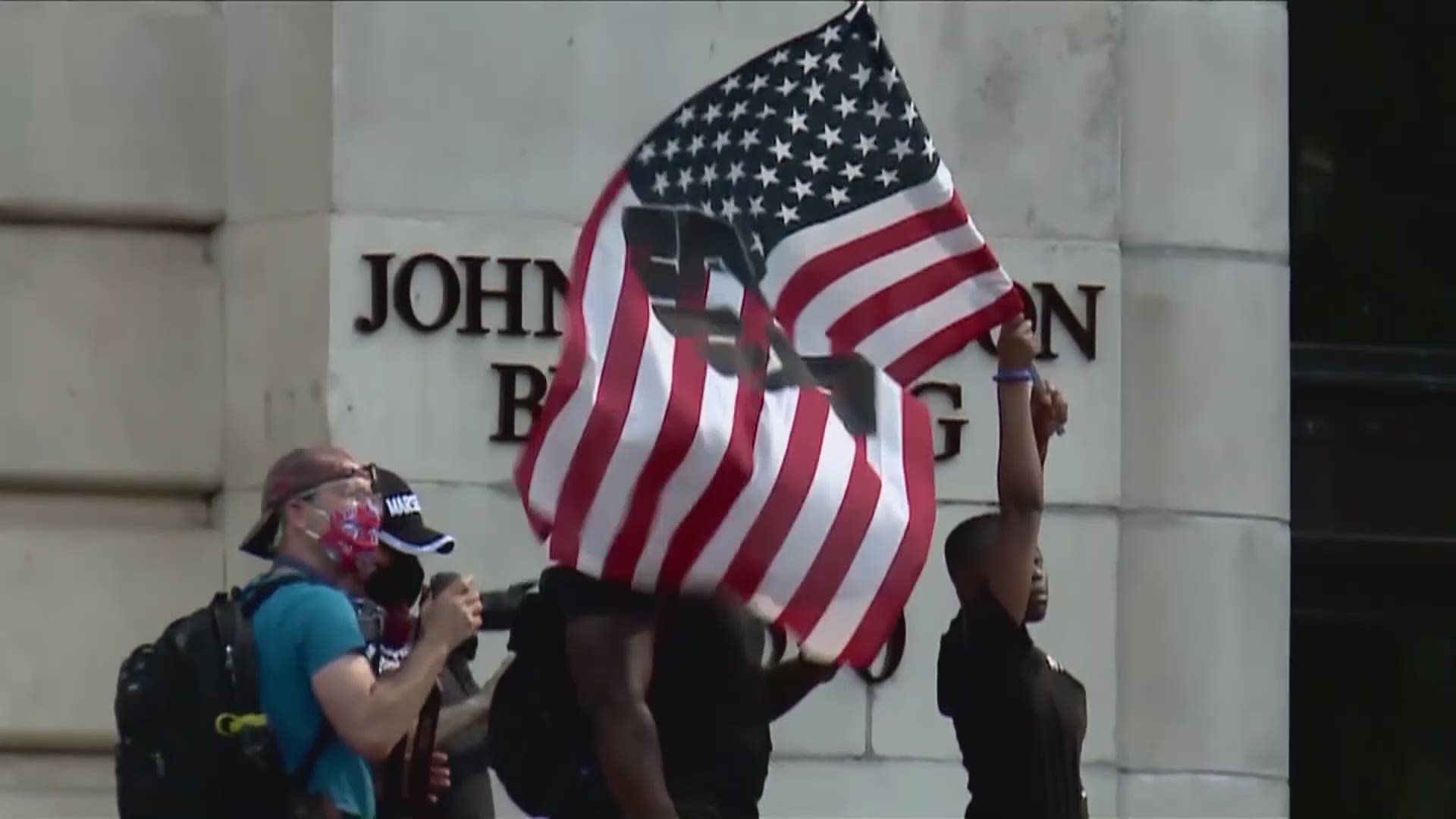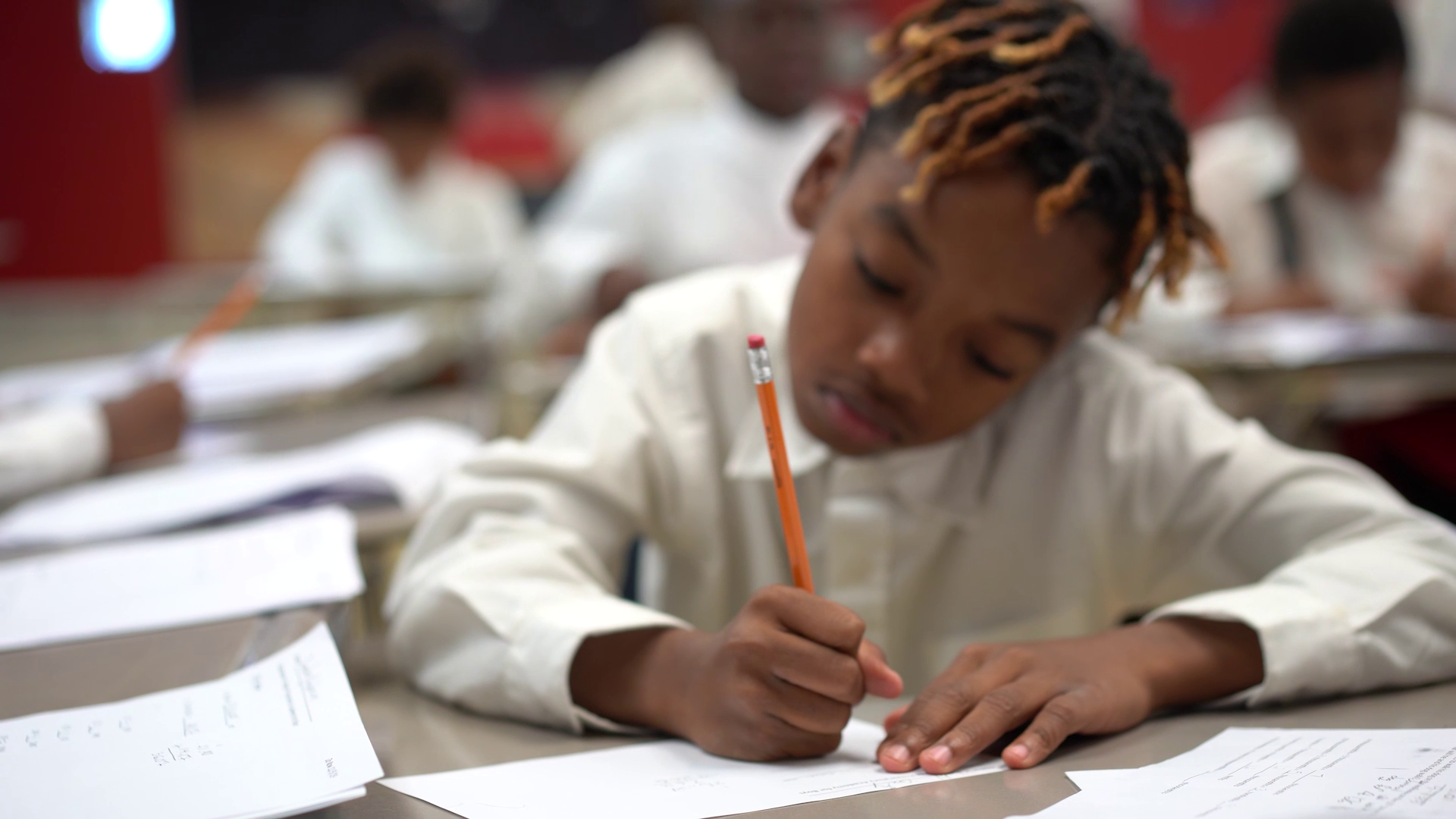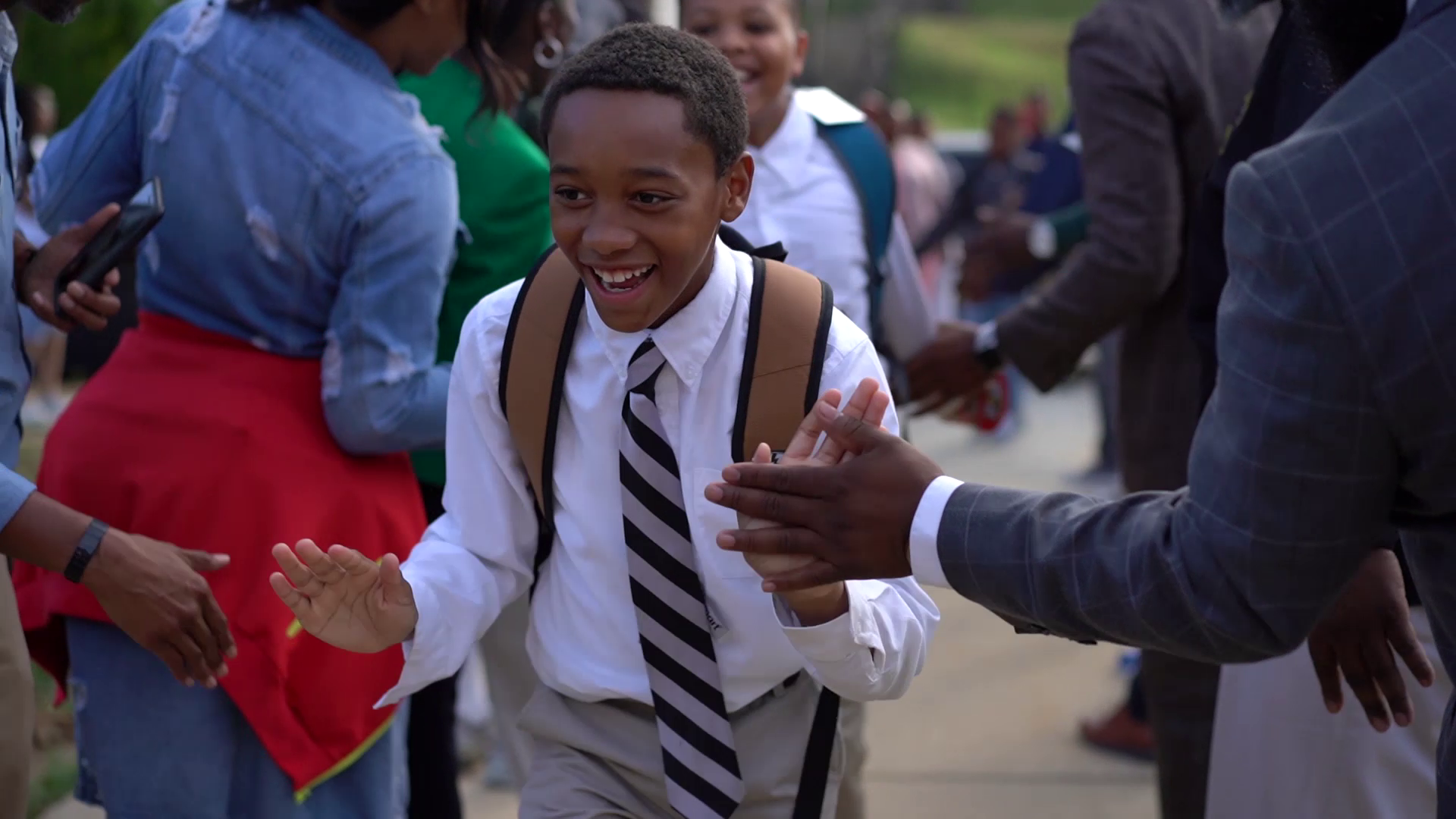WASHINGTON — For the Corbitt family, 2020 has been a summer of change. Satira and Kevin Corbitt said they talk to their sons Kiye and Cole daily about racial injustice in America, but this year feels different.
“I can honestly say, our entire summer, we've had a social justice summer,” Satira Corbitt said.
"My mom has been really involved in teaching me my history," Kiye added. "This year, she has gone way up."
Kiye’s mother gives him daily Black fact worksheets, reads books and enrolled him in a debate group focused on the state of Black men in America.
"My brain is on the verge of explosion,” Kiye said.
"Having to teach them at this age is daunting,” Satira said.
So daunting that she wanted help outside the walls of her home and took a big risk. Satira and Kevin sent Kiye to a startup school in Southeast D.C. – primarily for its history course.
RELATED: 'For black and brown boys' | This DC school is changing the way students of color are educated
"As much as it's history, it's also character-building,” Satira said.
Statesmen College Preparatory Academy is a public charter school that opened in late 2018, with a culture and curriculum customized for boys of color.
Students have the usual English and science courses, but history isn’t taught by the book. It’s the full picture, and they call it KINGS 101.
"We're trying to teach them to value themselves,” one of the school’s founders, Shawn Hardnett said.
Hardnett said Black boys often go too long without learning their story because it’s been erased from mainstream U.S. history courses.
"When I was in college, taking Black history for the first time, all of a sudden, this was alive," he said. "It was in front of me. This thing was real."
Now it's real for the school’s fourth, fifth, and sixth-graders.
In KINGS 101, Black history is standard practice the entire school year.
They touch on topics ranging from wealthy African empires to examining laws deliberately passed in the U.S. for decades to keep Black communities from thriving.
KINGS 101 teacher Eloheem Raheem Ali said the students are learning about kings and queens.
"The first image of a man who looked like me that I saw in my history book was a man in chains on his knees,” Ali said. "What does that do to a Black kid who sees that? Who looks at a man in chains, as a man who looks like him, and sees a man who doesn't look like him as a king?"
This school is practically a throne and students are immersed in images of Black royalty, including poster-sized portraits of themselves.
Statesmen is the only school in the DMV that is offering this type of class year-round for students.
Public charter schools have greater flexibility when it comes to charting their course.
Right now, most large public school districts in the region are re-examining how Black history is taught, following this national conversation on racial inequities – including in the classroom.
Hardnett admitted, they’ve had to do the same at Statesmen, first, because of virtual learning.
"The interactions. The conversational interactions are not the same. Right. Not the same,” Hardnett said.
This current movement for racial equality also forced teachers to plunge into tough topics and conversations, sooner.
"What happened with George Floyd became the opportunity to actually bring that forward. Parents wanted us to talk about it. Kids wanted us to talk about it. They're 9, 10, 11, 12 years old. These are heavy concepts. Heavy topics,” Hardnett continued.
"We started talking about if the police walk up to you if we should just put our hands up and be calm or put them up real fast. He said put your hands up slowly and tell the cop, I'm going to put my hands up slowly,” Kiye said.
Although virtual learning has complicated their mission, Hardnett says KINGS 101 has brought them all closer together, especially parents, some who may have never had this lesson.
"When we were having those conversations, parents were sitting on the couch, with their kid on the couch next to them, listening and engaging in that conversation,” Hardnett said.
“I feel like I've changed. Like, it's always swimming around my mind,” Kiye said when speaking about the lessons he’s learned at school and home.
However, the 11-year-old said, because of recent events, he understands why these lessons are important.
“When I grow up, I may do more and more to stop this. If it's not stopped already before I grow up,” Kiye added.
Statesmen scholars will start the new school year, virtually, on Aug. 24.



